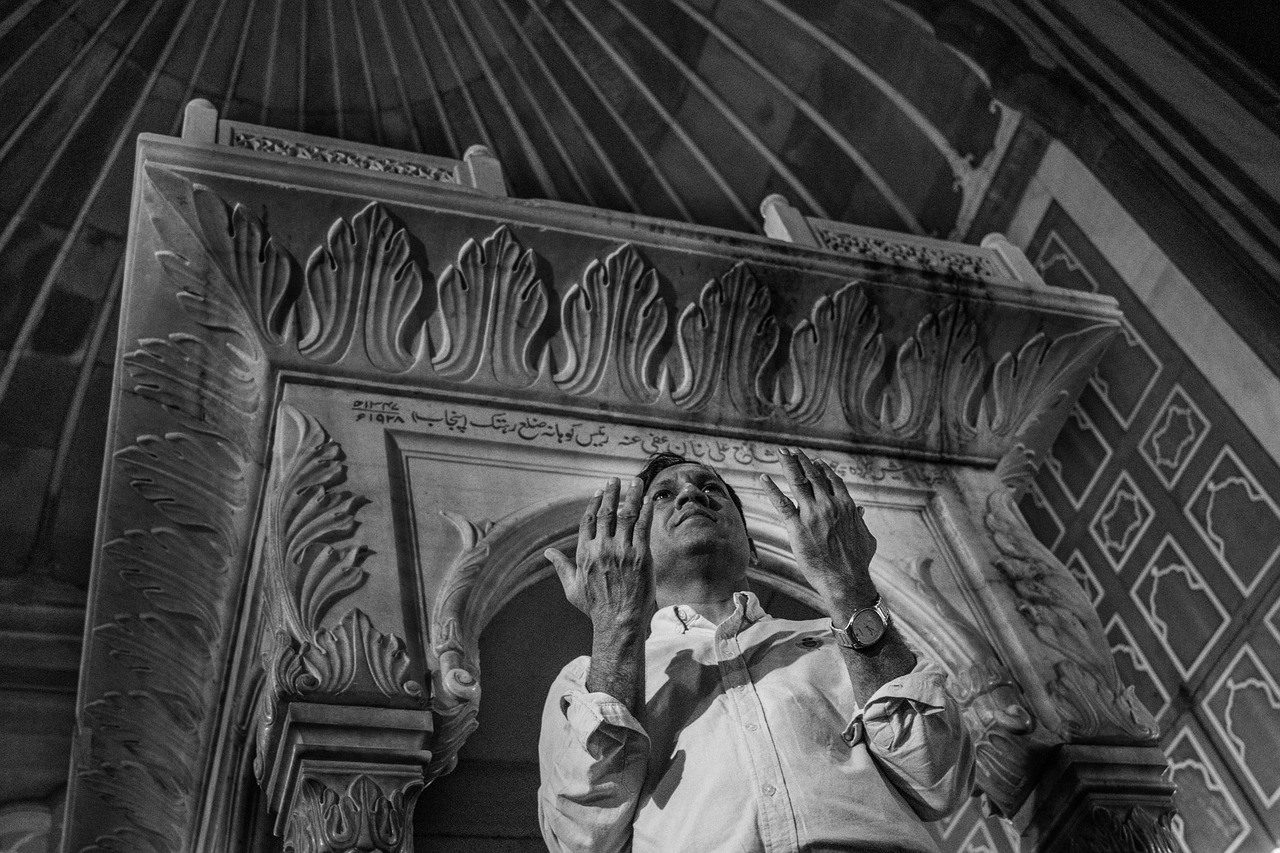When Alison [all client names in this piece have been changed] was a child she grew up in an abusive home. Both of her parents were severe alcoholics. And while her mother was verbally abusive, her father was physically and sexually abusive as well.
As with so many children of abuse, she struggled to understand a world where she was hurt by the people who were supposed to love her the most.
In her journey, she discovered The Church of Jesus Christ of Latter-day Saints. She was baptized and found growing peace through the gospel. Yet she felt she still needed additional help to heal the PTSD and anxiety her abusive childhood left her with. So, she sought out mental health professionals within the structure and boundaries of this new faith that had become so meaningful to her.
When she brought up her anxiety, the Latter-day Saint therapist working with Alison asked how she felt while reading her scriptures, and Alison confessed that she sometimes felt pressure to improve. So the therapist recommended she stop reading her scriptures for a week.
Alison felt surprised.
Soon after Alison’s marriage, intimacy became a major stumbling block as it is for many who experience sexual abuse. Sexuality is a particularly complicated subject, and Alison felt as though much of the world would look down on the chastity standards she had adopted as part of her new faith. In order to feel confident in the counsel the therapist would provide for her, she once again sought out a Latter-day Saint therapist.
Early on, after Alison was asked about her views on sexuality, the therapist suggested she had misunderstood Church teachings as overly prudish. Alison trusted her therapist and expected that because of their shared faith tradition, she could feel safe with these suggestions. But in short order, the therapist assigned Alison graphic prurient readings and videos that Alison described as “pornographic.” It was only after Alison noted a steep decline in her spirituality that she stepped away from her therapy altogether. That desire for a safe therapeutic space among Latter-day Saint clients is real.
But according to a recent letter signed by more than two hundred Latter-day Saint therapists, it should not surprise us that many do not. They wrote “It is not within the scope of our professional ethics to decide what qualifies as ‘guidance consistent with doctrine.’” But rather to merely, “support client self-determination.”
If professionals like these won’t help clients ensure that therapy remains within the bounds of Church teachings, why do they believe clients specifically seek them out? The letter suggests “mental health clients often wish to see a therapist who shares their cultural experiences … a Mormon therapist builds trust based on the quality of our cultural competency.”
That desire for a safe therapeutic space among Latter-day Saint clients is real. In an informal survey in preparation for this article, I gathered data from 117 individuals who sought out and received counseling from Latter-day Saint therapists. When asked why they chose to see a Latter-day Saint therapist:
- 15% of clients indicated, “You could save time not having to explain Latter-day Saint culture and terminology.”
- 25% of clients suggested, “They could provide advice based on an understanding of cultural issues unique to Latter-day Saints.”
- 53% replied, “You would feel safe from being looked down on for your unique beliefs and culture.”
- 62% “They would not provide advice or treatment that violated gospel principles.”
While the survey was informal, the results make clear that a significant number of those who seek out Latter-day Saint therapists do so for more than merely cultural reasons. In fact, they not only think those therapists who advertise their shared faith will be able to provide advice within the guidelines of the gospel, but they expect them to. “I see all the time therapists who lead their clients outside the boundaries of the gospel while believing they are merely helping with self-determination.”
Yet those who signed the letter suggest that their role is to “put the client’s agency and self-determination at the center” instead. Presumably, this suggests they believe their therapy can potentially help those who wish to stay within the boundaries of the gospel, but that it’s not their role to protect those boundaries.
Jeff Bennion, a licensed marriage and family therapist, tells me, “I see all the time therapists who lead their clients outside the boundaries of the gospel while believing they are merely helping with self-determination. In many cases, it seems these therapists don’t even realize they’re doing that.”
Seeking Spiritual Safety in Therapy
Hyrum had grown up as a Latter-day Saint but always had more energy than usual and didn’t always feel like he fit in at church. Yet ultimately he described feeling the love of God at church and identifying himself as a Latter-day Saint.
As a teenager, he began to experience depression. And so his parents sought out a Latter-day Saint therapist who could help him. Hyrum says “my parents just wanted the therapist to convince me to be more righteous so that I would be happier.”
In the first session, however, the therapist told Hyrum that the sessions were his and that they didn’t need to do what his parents wanted. Within a few sessions, Hyrum began to open up, and the therapist asked him how he felt about Church rules. He admittedly sometimes wished he could break the Church’s guidelines, but he didn’t want to feel that way and assumed that by telling his therapist, he could help him work through those conflicted feelings. But something else happened entirely. When Hyrum admitted his feelings, the therapist asked him more questions about them and used language that made him feel as though his feelings were not only natural but right. And eventually, he started to ask Hyrum if he felt he’d be “more in alignment with his feelings” if he acted on them.
Within only a few months he was role-playing with his therapist how to inform his parents that he did not want to follow the guidelines of the Church regarding chastity and the word of wisdom.
For the next twelve years, Hyrum says he described himself as an atheist-agnostic until eventually recognizing a spiritual hole inside. He eventually returned to the Church of Jesus of Christ and feels more at peace today than ever before.
Hyrum tells me he wishes he could go back to that crucial moment in the therapist’s office and stop his younger self from admitting his darker feelings. “It’s tricky,” he tells me, “I needed someone to help with my depression. But I thought I could trust my therapist to keep me spiritually safe … I still sometimes wonder if it’s my fault for telling him.”
Hyrum is far from alone.
My informal survey asked respondents if their therapists ever made suggestions that they felt were outside the boundaries of the Church’s teachings. Of the 72 respondents who said that they chose a Latter-day Saint therapist specifically so they would not provide advice or treatment outside the boundaries of the gospel, over half of them (51%) said their therapist made recommendations they believed to be outside of gospel boundaries.
These same people elaborated on how they responded when their therapist first made the suggestion. Their responses illuminate the real vulnerability that exists among clients seeking support from a Latter-day Saint therapist:
- “My first instinct was to wonder … whether I misunderstood the gospel standards.”
- “I felt confused, but I assumed they knew what they were doing.”
- “Hesitancy at first, but [name redacted] helped me realize the Church was more open-minded than I thought.”
- “I didn’t say anything. And I never went back.”
- “My first thought was, ‘I didn’t realize this was okay.’”
Strikingly, none of these people reported pushing back or clarifying their boundaries. And many admitted they had left the session believing that the therapist’s recommendation somehow implied Church approval.
Perhaps the most natural solution to some of these challenges, as many have pointed out, is to ask therapists to provide more transparent “informed consent” in terms of acknowledging their own values relevant to a client’s specific concerns. In the case of a Latter-day Saint therapist who has significant critiques of core doctrines taught by the Church of Jesus Christ, this would mean being upfront and candid about that with potential Latter-day Saint clients. In other cases this could mean disclosing more clearly the role a therapist sees themselves playing—for instance, potentially explaining to clients that they don’t see themselves responsible for maintaining boundaries of Church teachings.
But in my informal survey, only three respondents (of 117) selected yes to the question, “Did your therapist disclose that it was not their responsibility to maintain boundaries of Church teachings?”
But even when therapists believe they have made their role clear, the disclosure does not always have the effect therapists may hope.
Wielding Spiritual Power
Ethan was nine when he first saw pornography. Like so many he was curious. But by the time he was a teenager, it had become obsessive. The habit affected his schoolwork to such a degree that he lost his place on his school’s wrestling team, and he felt he could not relate to girls of his same age. He also felt tremendous religious guilt.
Ethan worked with his bishop to begin to quit the habit. Slowly, but surely he had reduced his usage to only a few times a day. He had gotten his academic eligibility back and was excited to try out for the team again the next year. At that point, his bishop recommended he see a therapist. At first, Ethan wasn’t able to get an appointment with a Latter-day Saint therapist, so he went to a practitioner from a different faith tradition. But Ethan tells me that with his habit no longer out of control, the therapist wasn’t sure what he wanted help with. So he went on a waiting list to see a Latter-day Saint mental health professional.
He remembered the excitement he felt when he finally got his appointment for his first session. It felt like a weight on his shoulders was about to be removed.
During the first session, Ethan tells me his therapist informed him that she would not tell him what he should or shouldn’t do and that it was his job to tell her what his values were.
During only the second session, however, Ethan’s therapist asked him why he wanted to stop viewing pornography altogether. He admitted to her it was no longer affecting his school or relationships, but that he felt guilty about it. So, she told him, “You don’t have a pornography problem, you have a guilt problem.”
Ethan tells me that it never occurred to him until that moment that you could be a faithful Latter-day Saint and watch pornography every day.
I pressed Evan, “But she had just told you she wouldn’t decide what is right and wrong.”
“Sure, but that had been a few weeks before. I knew she wouldn’t tell me what to do, but it never occurred to me that she would tell me to do something wrong.”
Since there had been a recent General Conference address on shame culture, Ethan told me that he assumed that the Church had been changing its position on pornography. “Why else would she have told me that?”
Ethan went on to tell me that the conversation did help him feel considerably less guilt and more freedom. He went home and dove right back into his habit. Ethan remembers his mother confronting him about it a few weeks or months later, and him retorting, “my therapist says it’s okay.”
Within a few months, his habit had reverted to the point it was once again affecting his daily life. “But,” he tells me, his therapist “never brought up quitting [in therapy]. It was all about how to deal with the guilt.”
To recap: Ethan went into therapy wanting to quit pornography entirely. His therapist disclosed that it was his responsibility to maintain his boundaries. And yet within two sessions, he had adopted an entirely new path based on a suggestion he did not generate and that he had never before considered.
This brings to mind Brigham Young University professor Brent Slife’s important and timely argument that therapists often act even unwittingly as “crypto-missionaries.” Therapists may aspire to provide their clients with “self-determination,” but as the stories of Alison, Hyrum, Ethan, and many others suggest, this frequently does not occur for clients who hope to maintain religious boundaries.
The therapists who signed this public letter, however, seem to suggest that even if clients expect them to maintain the guidelines of the Church, this would be impossible since these guidelines are not always perfectly clear. They wrote, “Our clients are frequently confused” about “what qualifies as ‘guidance consistent with doctrine.’”
From my interviews, however, it appears that many clients recognize this and hope that their therapists will in fact help them see Church doctrine from different points of view, but importantly still within the broadly accepted guidelines of the Church.
My informal survey asked respondents to identify which if any of the following were “Church guidelines.”
- Love one another
- Forgive others
- Be honest with others
- Regularly pray and read scriptures
- Attend sacrament meeting and the temple regularly
- Believe in God, Jesus Christ, Joseph Smith, and the modern-day prophet.
- Do not have sex outside of marriage
- Do not view pornography
- Do not engage in emotional, physical, or sexual abuse
- Do not partake of tobacco, alcohol, or illegal drugs
More than 90% of respondents selected each of those options, except attend sacrament and the temple regularly (perhaps because of current COVID restrictions). Yes, there remain some questions about Church guidelines, but there appears to be a robust agreement around general Church guidelines and values that clients seeking out Latter-day Saint therapists expect them to share and encourage in sessions. Thus, advertising that you are a “Latter-day Saint” therapist does not appear to be a nebulous category that merely communicates cultural familiarity, but rather communicates to many clients a robust shared value system that they expect to be able to rely on. When therapists advertise themselves as Latter-day Saints, it is clear that they create an expectation.
Nothing suggests these therapists intend to mislead their clients. Those who signed the letter wrote, “It would be highly unethical and ineffective to ‘trick’ our clients into ‘trusting us’ with a goal of influencing them in regards to their relationship with the Church or to promote values that go against (or go in favor of) Church teachings.” But the differences in expectations amplified through the power differences between a therapist and client frequently seem to create a situation where clients are being legitimately misled.
Dr. Cedar Barstow, an educator and psychotherapist, explains that there is an inherent power difference between therapists and their clients. She writes, “The power difference between therapist and person in therapy, or other similar pairs, is the dynamic that creates down-power vulnerability. Down-power vulnerability, based in a role, is what creates the need for ethical guidelines to protect people from harm.”
When therapists advertise themselves as Latter-day Saints, it is clear that they create an expectation among a significant portion of clients that they will provide therapy within the broadly agreed-upon boundaries of the Church. These clients trust their therapists to help them improve their mental health while keeping them spiritually safe. Gratefully, once again, many Latter-day Saint therapists do exactly this and provide support within these expected boundaries.
Yet in all too many cases, Latter-day Saint therapists seem to be significantly violating that trust.
And those therapists who signed the letter cavalierly suggesting that maintaining spiritual boundaries is not their job, now arguably have a huge gulf of trust to overcome with their clients who reasonably expected otherwise.
















